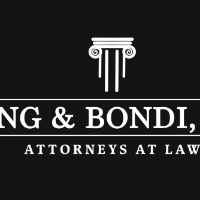Crest Hill RICO Act Lawyers, Illinois
Sponsored Law Firm
-
 x
x

Click For More Info:
-
The Law Offices of Richard L. Cooper, P.A.
848 Brickell Avenue Suite 800 Miami, FL 33131» view mapDWI/DUI, Drug Trafficking, Felony Nationally Ranked Top 40 Under 40
With Richard L. Cooper you can expect a trusted confidant who will work diligently to fully understand your case and determine a road map to help you regain control of your life.
800-756-2781
Not enough matches for Crest Hill RICO Act lawyer.
Below are all Crest Hill Criminal lawyers.
Sponsored Lawyers
1-10 of 47 matches
Criminal, Traffic, DUI-DWI, Misdemeanor, White Collar Crime
Attorney Eric J. Blatti was born in the state of Illinois, specifically the Joliet area. He has since remained a part of the local community. Eric graduated from Joliet Township High School and attended Joliet Junior College where he received his Associate's Degree in Arts. After junior college, he continued his education and graduated from Lewis University with a Bachelor's Degree in Political Science (Cum Laude). Eric then attended the Thomas M. Cooley Law School. He earned his Juris Doctor agree in January of 2008 (Dean's List). While in law school, Eric interned for the Will County Public Defender's office. In 2008, he passed the Illinois State Bar and was hired as a full-time-attorney. As an Assistant Public Defender, Eric earned the respect of fellow attorneys and judges. He had a reputation as a fearless litigator and persuasive negotiator. He gained valuable experience by trying over 50 cases, including both jury trials and bench trials. Utilizing his extensive legal knowledge and effective trial skills, Eric now operates his own practice and serves Chicagoland in the areas of criminal defense, traffic crimes, DUI, expungement, driver's license reinstatement, and divorce and family law. He maintains active memberships in the Will County Bar Association and Illinois State Bar Association. Attorney Eric J. Blatti and our law firm can assist you with your Will County, Kendall County, or Grundy County case. Call 815-666-2740 or contact us online to schedule a free initial consultation at our Plainfield law office.
(more)Accident & Injury, Car Accident, Criminal, DUI-DWI, Medical Malpractice
David M. Carlson, an esteemed attorney with a notable track record, currently practices personal injury and criminal defense law. He has been duly admitted to the Illinois bar since 2001 and is also accredited to practice before the United States District Courts for the Northern Districts of Illinois and Indiana since 2002 and 2003, respectively. His legal career is distinguished by his comprehensive understanding and application of the law, drawn from his extensive educational background and professional experiences. David completed his law degree at Northern Illinois University College of Law in 2001, where he was honored as the class speaker at his graduation. He furthered his education with a specialized program in 2021 through the Judicial Education Program at George Mason University's Antonin Scalia School of Law. This program enhanced his knowledge in a broad range of topics, including corporate governance, economics, and the responsibilities of corporate entities towards stakeholders. Before commencing his law studies, David earned a Bachelor’s degree in Political Science from the University of Arizona in 1993. Throughout his college years, he was an active member of Delta Tau Delta Fraternity and worked various jobs, from delivering packages for United Parcel Service to construction work, to finance his education. Alongside practicing law, David served in the judiciary from 2013 to 2024. He began as an Associate Judge in the 12th Judicial Circuit, Will County, Illinois, where he handled an array of cases spanning family law to civil and criminal matters. Following this role, he was promoted to Circuit Judge, presiding over the felony division, which is the second largest in the state. Under his leadership, his team was responsible for managing a robust caseload and integrating new technological systems into the court’s operations. He was commended for his diligence and commitment to justice and retention in a 2020 general election with a significant majority vote affirmed his position. Today, David is not only a member of the Illinois State Bar Association but also retains his connections with the Illinois Judges Association, reflecting his ongoing commitment to his professional community. His former role as both Associate Judge and Circuit Judge illustrates his depth of experience and leadership abilities, particularly in managing complex legal challenges and advancing judiciary processes. David M. Carlson is more than just a seasoned attorney; he is a respected professional who brings a wealth of knowledge, a deep sense of responsibility, and proven leadership to every case. He represents clients with both tenacity and integrity, ensuring that their legal needs are met with the highest standards of excellence.
(more)Criminal, Felony, DUI-DWI, Misdemeanor, Expungement
Marisa Bondi, one of the managing Partners & Owners at King & Bondi, LLC., has years of experience practicing specifically Criminal Law and Traffic. Her focus is to help her Clients achieve the best outcome for their specific needs. She has been participating in trials/litigating for years. She serves Will & DuPage County. Please contact her for any questions you may have.
(more)Criminal, DUI-DWI, Juvenile Law, Traffic, Felony
Kristine Honiotes is a trial lawyer with over 12 years of experience. As a former Will County Assistant Public Defender, she defended all types of felony and misdemeanor cases including murder, domestic violence, DUI, drug offenses, and other serious felony offenses. From our office in Joliet, Illinois we serve clients throughout Will County, DuPage County, and Cook County including but not limited to Lockport, Plainfield, Crest Hill, Romeoville, Bolingbrook, Aurora, New Lenox, Mokena, Homer Glen, Frankfort, Peotone, Shorewood, Manhattan, Wheaton and Downers Grove.
(more)



 Richard L. Cooper Miami, FL
Richard L. Cooper Miami, FL AboutMiami Attorney at Law
AboutMiami Attorney at Law ServicesCriminal Defense
ServicesCriminal Defense




